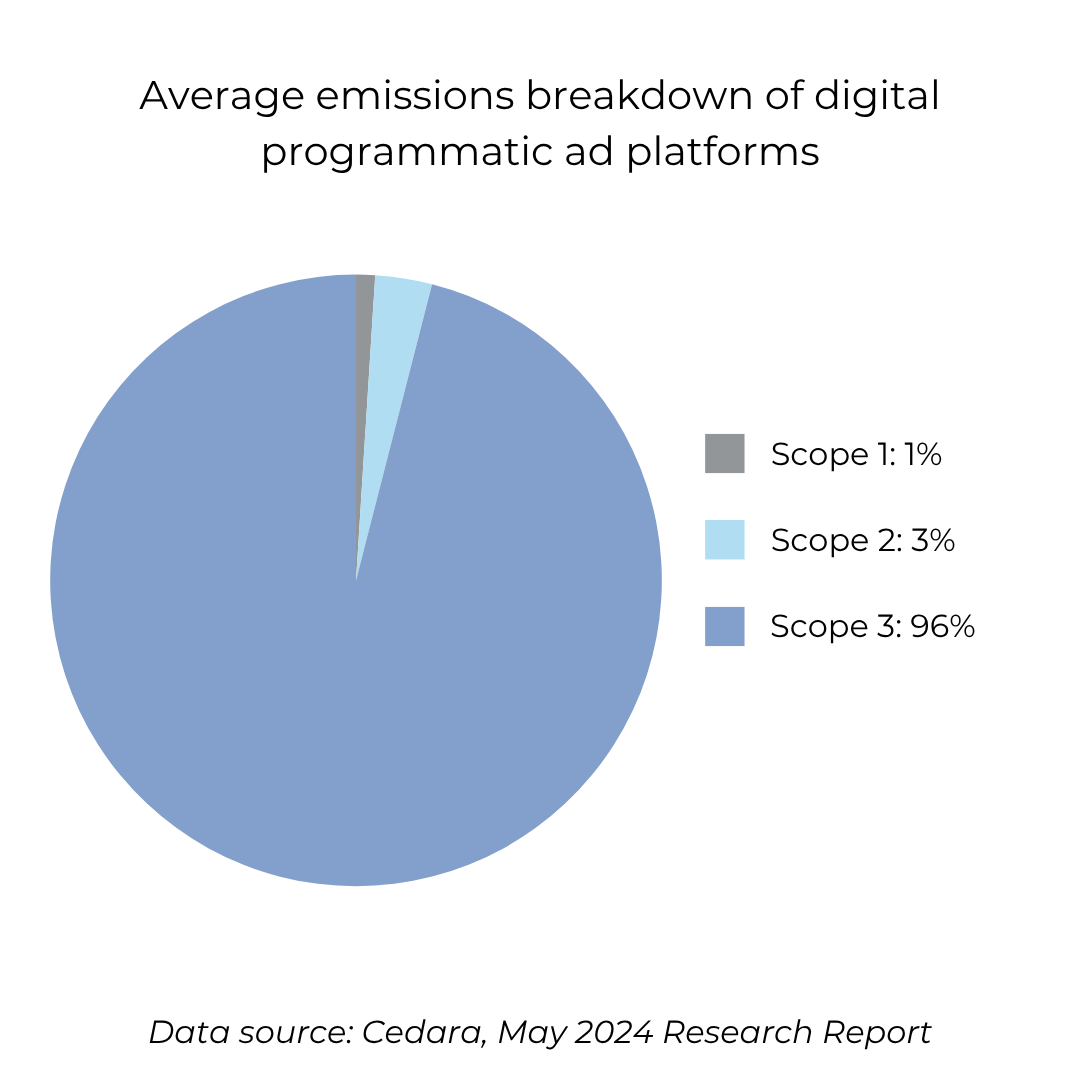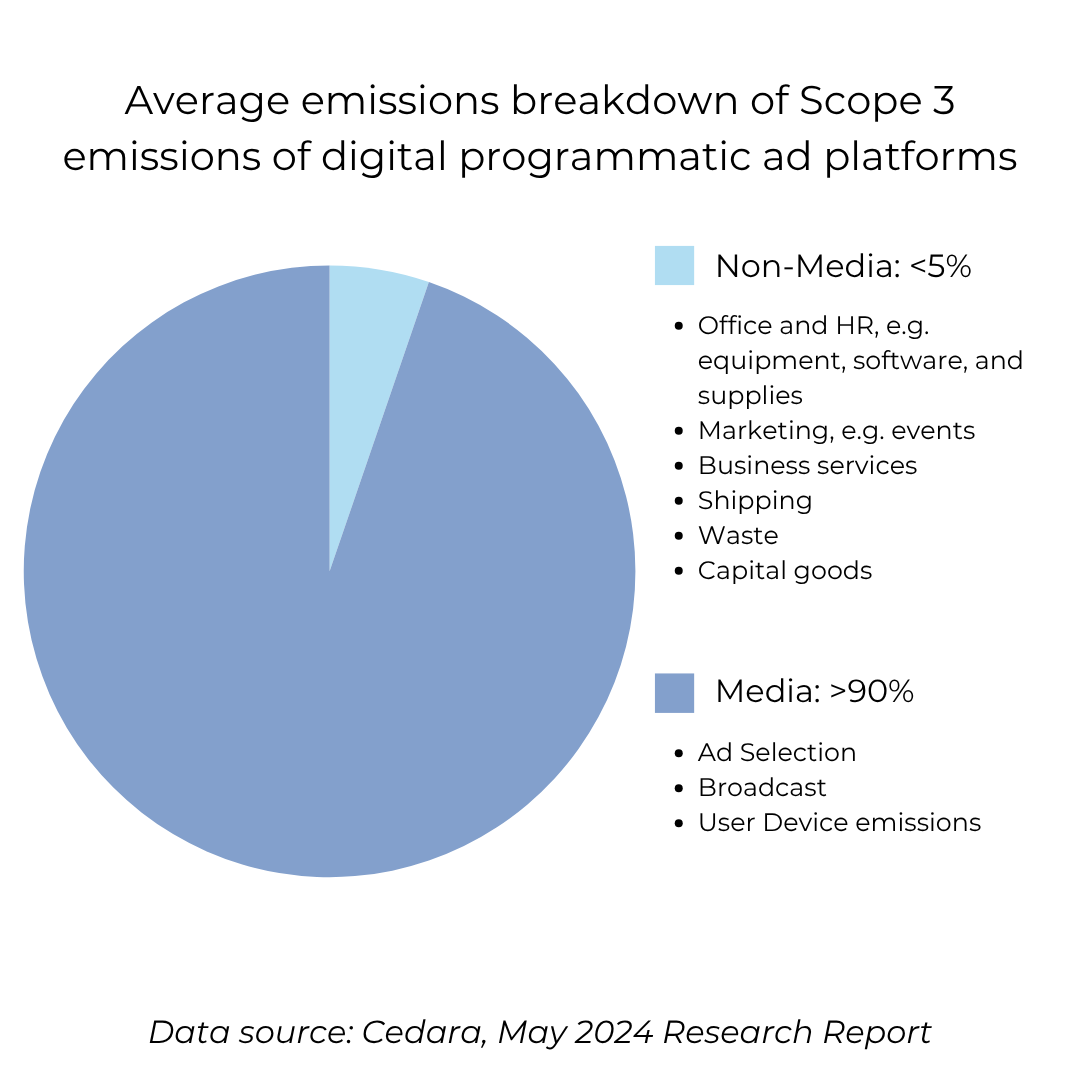Why Advertising agencies are uniquely placed to benefit from a sustainability certification
Why Advertising Agencies Are Uniquely Placed to Benefit From Sustainability Certification
12 August 2025
Every industry has its own set of challenges when addressing climate change. Advertising is no different and, we would argue, is uniquely positioned to benefit from the credibility that a sustainability certification brings.
Sustainability is now a competitive advantage. Consumers actively seek out environmentally responsible businesses, and advertisers are under growing scrutiny. GoodLoop reports that a typical online ad campaign generates roughly 5.4 tonnes of CO2e – around half the annual footprint of a UK resident. Multiplying that to ad campaigns run globally reveals an astonishing level of output. Figures like this are no longer considered acceptable by the scientific community, the industry itself, and ever more educated consumers.
The advertising world sits at the intersection of business, consumers, behaviour change, and messaging. As such, it is both reactive to its clients’ needs and proactive in its search for new audiences. A 2024 Deloitte report found that 79% of Gen Zs and 81% of millennials believe businesses should do more to help consumers make sustainable choices. A sustainability certification supports this by offering clear, third-party proof that an agency is serious about its impact, empowering consumers to make responsible choices without guesswork.
Given the pressures on the advertising industry and its unique access to audiences, it is in the spotlight as never before. As the industry evolves, certification demonstrates that an agency is keeping pace. It provides tangible evidence of a commitment to sustainability, both internally and externally, and helps futureproof the business against rising regulatory and consumer pressure.
Advertising Standards Authority Green Claims Code
Advertising’s role in environmental messaging is now under greater regulation. The UK’s Green Claims Code (GCC), introduced in 2021, aims to improve the accuracy of sustainability claims. These claims might be made by organisations themselves, but advertisers have an outsized influence on the messaging that makes its way from brands to consumer consciousness.
The GCC restricts exaggerated environmental claims made by advertisers and their clients - visit our guide here for more details on what it means for sustainability-related communications. Nobody expects an advertising agency to double as an eco-consultancy, however tightening greenwashing rules highlight the need for informed, credible communication between agencies and their clients. Agencies with sustainability credentials will be far better equipped to guide clients responsibly, recognising greenwashing and pushing back when needed.
Certification also strengthens client relationships by showing that you’re committed to the same goals and are walking the talk. When agencies demonstrate they’re doing the work themselves, it’s easier to have open, constructive conversations, as clients see you working alongside them as genuine partners in sustainable, responsible practices.
Emissions responsibility
UK advertising agencies generate over 84,000 tonnes of operational CO2e annually. Industry initiatives like Ad Net Zero, launched in 2020, are working to reduce this impact across the industry, including advertising agencies, commercial media owners and production companies seeking to reduce their emissions.
Scope 1 (direct emissions from owned sources) and Scope 2 (indirect emissions from purchased energy) make up a relatively small share of an organisation’s total emissions. In comparison, Scope 3 emissions (i.e. those produced across a company’s value chain) can account for over 90% of total impact. In the digital advertising ecosystem, ad selection and media distribution - part of programmatic supply chains and feeding into Scope 3 emissions - are crucial areas of focus for improving impact. A 2024 Cedara report shows the emissions breakdown in digital programmatic ad platforms. The results are visualised below.
It is clear, then, that addressing these emissions requires collaboration across the sector. Certification not only demonstrates commitment but facilitates partnerships aligned with reducing emissions and improving sustainability.
There’s also a growing conversation around ‘advertised emissions’ – the increase in carbon footprint resulting from ad-driven sales. Purpose Disruptors, who introduced this concept at COP26, estimate advertising contributes to 32% of the average UK individual’s footprint. Given their influence on consumer behaviour, advertising agencies are under growing pressure, and gaining momentum, to lead on sustainability. Much of this shift is being driven by consumer demand. Time and again, public pressure for positive change outpaces both business and legislation. Clear environmental goals and transparency are fast becoming basic ‘business hygiene’. Agencies that fail to respond risk falling behind, even in a sector not traditionally linked to climate change.
Good business sense / ROI
Sustainability is as much about business survival as it is about values. Companies that resist more responsible business models will find it harder to maintain partnerships and client loyalty. A credible sustainability policy signals integrity and delivers real return on investment.
To maintain a competitive advantage in the sustainability space, a properly audited certification is a strong differentiator. It speaks directly to three business-critical demographics – consumers, clients, and your employee pool.
Consumers and clients
Many B2B organisations now screen suppliers for sustainability credentials. This trend is growing, particularly among multinationals facing legal obligations. A recognised certification can determine whether an agency secures or loses a contract.
Even without formal requirements, value alignment is becoming a standard part of business. Certification shows your agency is serious and already making progress, not simply reacting to market trends.
Staff acquisition and retention
Millennials and Gen Z increasingly prioritise environmental action when choosing employers. This year, Deloitte found in that 70% consider sustainability policies important. A competitive salary is no longer enough.
If you want to build a sustainable, long-term business with talented, loyal staff you’ve got to look at millennials and Gen Z – retaining a keen eye on the latter. Involving staff in your sustainability certification process shows that their concerns matter and helps foster a committed, engaged workforce.
How ESGmark® can help
At ESGmark®, we help organisations to credibly demonstrate their Environmental, Social, and Governance (ESG) credentials to position themselves as a partner of choice. We do this through ESGmark® Certification, ongoing support and guidance, and carbon footprint measurement. We believe raising industry standards through transparency and collaboration is the fastest route to real change.
To explore how ESGmark® can support your agency, please don’t hesitate to get in touch at kayla.ellis@esgmark.co.uk or request more information here.



